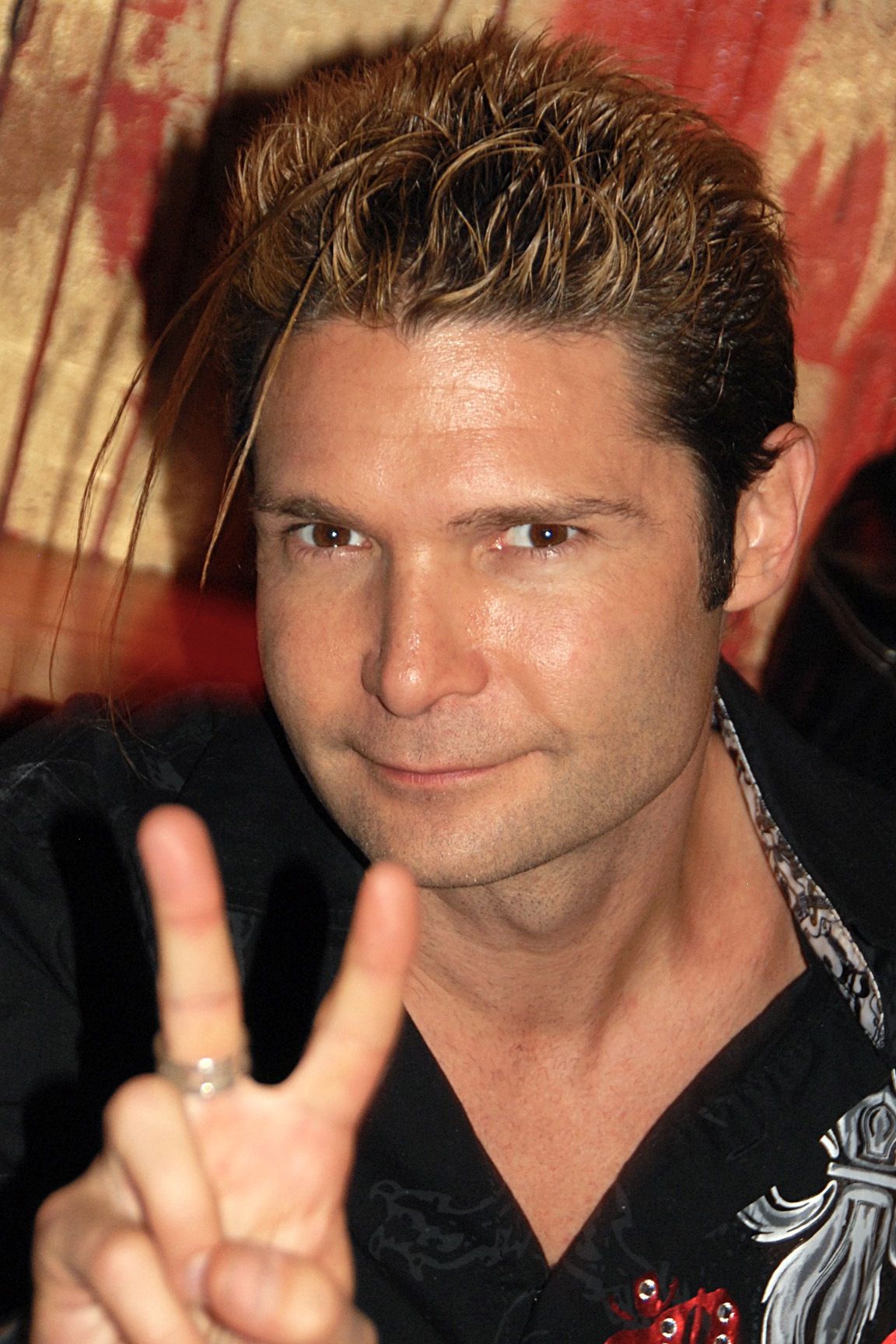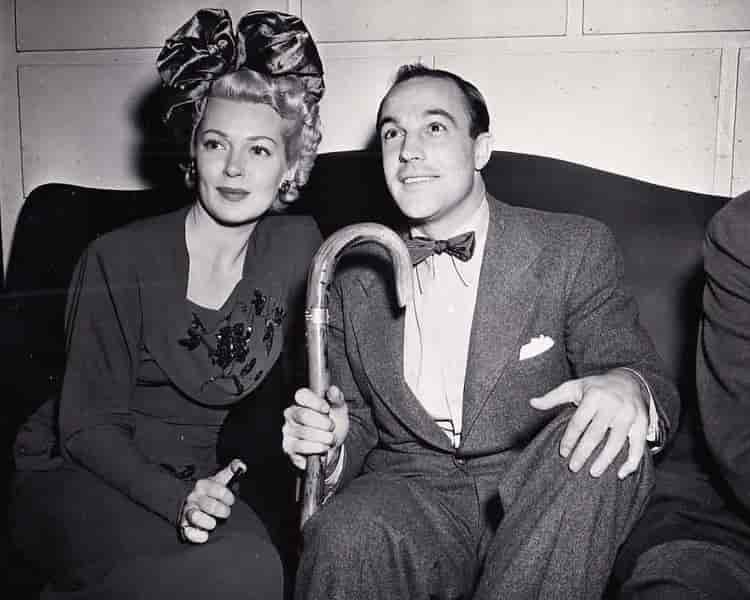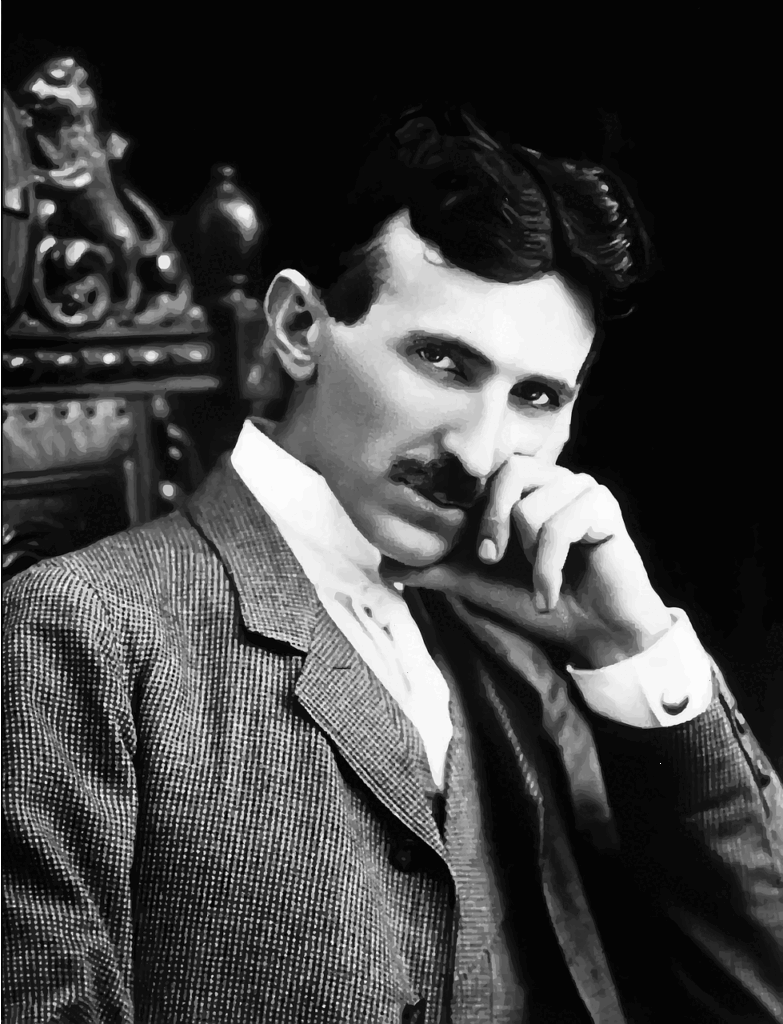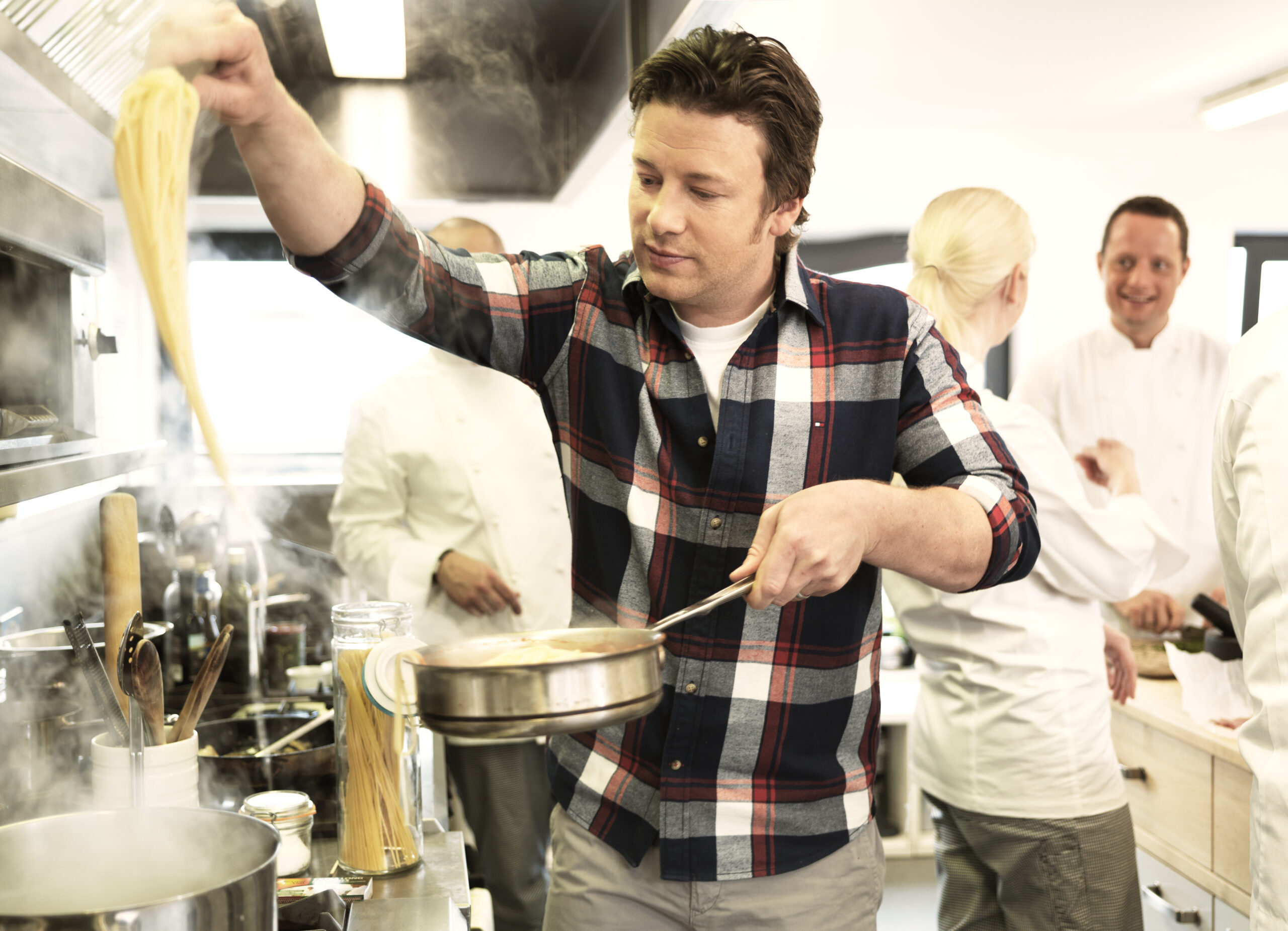
In the vibrant tapestry of modern celebrity chefs, few figures command as much attention, admiration, and sometimes, scrutiny, as Jamie Oliver. Born from the unpretentious backdrop of an Es pub kitchen, his journey has been nothing short of extraordinary, transforming him from a charming, quick-witted culinary talent into a global icon of food, activism, and entrepreneurship. He has captivated audiences with his approachable cooking style, challenged governmental policies with unwavering zeal, and built a vast, albeit sometimes turbulent, gastronomic empire.
Oliver’s narrative is one of constant evolution, marked by groundbreaking television series, a prolific publishing career, ambitious restaurant ventures, and a passionate commitment to improving public health through food. His story reflects a relentless drive to make good food accessible to everyone, whether through simple recipes, revolutionary campaigns, or innovative training programs. His influence extends far beyond the plate, shaping public discourse on diet, education, and the very fabric of our food systems.
This in-depth exploration delves into the multifaceted career of Jamie Oliver, tracing the pivotal moments that defined his rise, the passions that fueled his activism, and the sheer force of personality that propelled him onto the international stage. We examine the distinct phases of his professional life, from his foundational experiences to his monumental achievements and the powerful resonance he continues to hold in the culinary world and beyond.

1. **Humble Beginnings and Culinary Roots**
Jamie Trevor Oliver’s path to culinary stardom began not in the gleaming kitchens of Michelin-starred restaurants, but in the heart of a quintessential English pub. Born on May 27, 1975, he was raised in Clavering, Es, where his parents, Trevor and Sally Oliver, ran The Cricketers, a pub and restaurant. It was within these familiar walls that the young Oliver first encountered the magic of food, honing his skills alongside his parents, absorbing the rhythm and demands of a professional kitchen from a remarkably young age.
This early immersion provided an invaluable, hands-on education, shaping his understanding of ingredients and the craft of cooking. The unpretentious, comforting atmosphere of a family-run establishment instilled in him a grounded approach to food, focusing on honest, delicious meals rather than overly complicated techniques. It was a foundation built on passion and practicality, setting the stage for his future philosophy of making good food accessible to all.
Leaving school at 16 with just two GCSE qualifications in art and geology, Oliver pursued his culinary education at Westminster Technical College, now known as Westminster Kingsway College. There, he earned a City & Guilds National Vocational Qualification (NVQ) in home economics, further solidifying his technical knowledge. This blend of practical, familial experience and formal training provided him with a robust toolkit as he embarked on his professional culinary journey.
His first professional role was as a pastry chef at Antonio Carluccio’s Neal Street restaurant, a pivotal experience where he gained expertise in Italian cuisine. It was here that he forged a lasting relationship with his mentor, Gennaro Contaldo, a connection that would later prove instrumental as Oliver expanded his own restaurant ventures. This early exposure to Italian flavors and techniques would profoundly influence his signature cooking style.
Read more about: The Unseen Chapters: 14 Celebrity Memoirs Offering Unfiltered Insights Worth Reading This Year
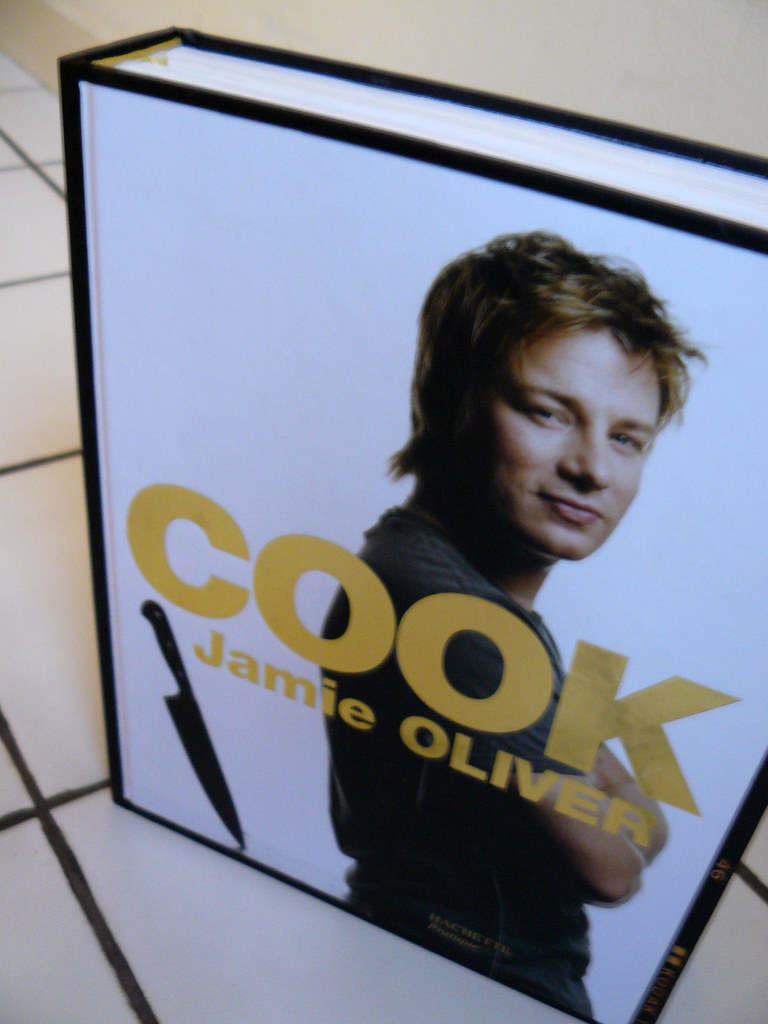
2. **The Naked Chef Phenomenon**
The turning point in Oliver’s career arrived with a serendipitous, unscripted appearance in a BBC documentary, ‘Christmas at the River Cafe’, in 1997, where he was working as a sous-chef. His infectious personality, youthful charm, and unpretentious approach to cooking caught the eye of television producers, leading to an offer that would change his life forever. The rest, as they say, is culinary history, unfolding rapidly in the public eye.
In 1999, the BBC Two series ‘The Naked Chef’ debuted, catapulting Oliver into the national spotlight. The title, famously devised by producer Patricia Llewellyn, was a clever marketing hook, referring not to nudity but to the simplicity and authenticity of Oliver’s recipes. He frequently admitted to being somewhat uneasy with the title, yet its impact was undeniable. The show stripped away culinary pretension, inviting viewers into a world where cooking was fun, approachable, and achievable.
The series was an instant sensation, resonating with a public eager for fresh, engaging food programming. Oliver’s relaxed demeanor, often seen zipping around London on his scooter, gathering ingredients from local markets, and preparing vibrant meals for friends, created a new archetype for the celebrity chef. His accompanying cookbook, also titled ‘The Naked Chef’, swiftly became a bestseller in the United Kingdom, solidifying his status as a culinary force.
The success of ‘The Naked Chef’ was immediate and far-reaching, transforming him from a promising young chef into a household name. That very year, his rising profile led to an invitation to prepare lunch for Prime Minister Tony Blair at 10 Downing Street, a clear indication of his burgeoning cultural significance. He had, in a remarkably short time, become a voice for a new generation of home cooks.
Read more about: Unraveling the COVID-19 Paradox: Why Some Stay Unscathed While Others Endure Long-Term Symptoms
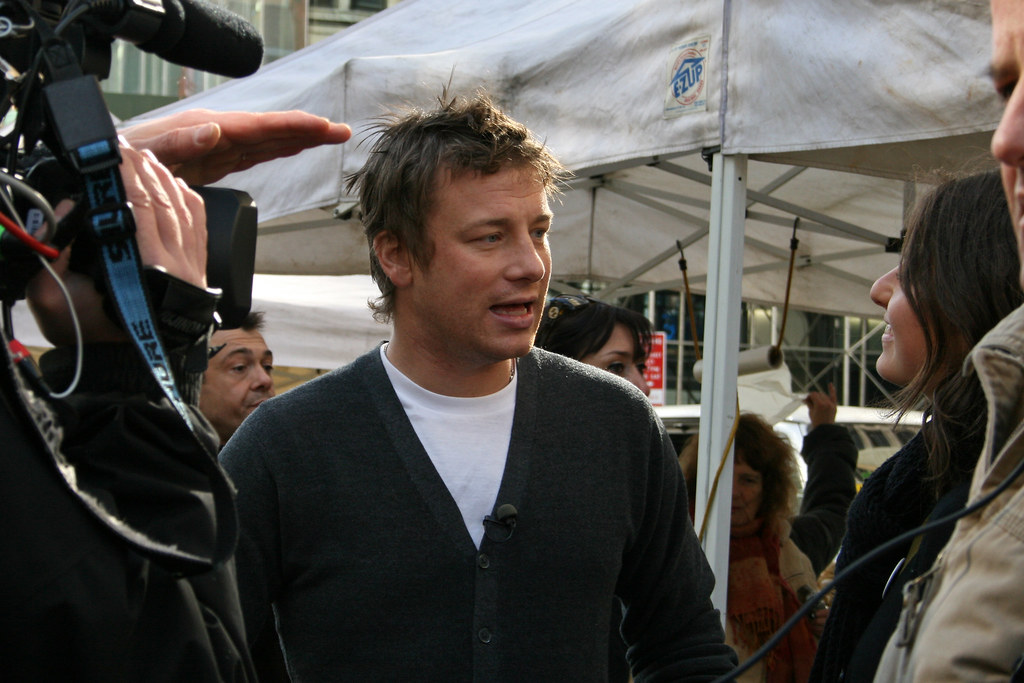
3. **The Philanthropic Plate: Fifteen Restaurant**
Beyond the glitz of television and bestselling cookbooks, Jamie Oliver harbored a profound commitment to social change, which he powerfully manifested through his Fifteen restaurant project. In 2002, following his move to Channel 4, his first series for the network, ‘Jamie’s Kitchen’, was a documentary that chronicled the ambitious and deeply personal endeavor of setting up Fifteen in London. This wasn’t merely a restaurant; it was a mission.
The restaurant’s core purpose was to train young adults from disadvantaged backgrounds, providing them with a transformative opportunity for careers in the demanding but rewarding restaurant business. Oliver saw the potential in individuals overlooked by traditional systems, offering them not just culinary skills but also life skills, mentorship, and a genuine chance at a fresh start. It was a testament to his belief in the power of food as a vehicle for social mobility.
Fifteen proved to be more than just a single establishment; its success led to the establishment of the Fifteen Foundation and the opening of further restaurants in Amsterdam, Cornwall (in May 2006), and Melbourne, Australia (in September 2006). These outposts replicated the successful model, extending the reach of Oliver’s philanthropic vision and creating opportunities for countless more young people to find their footing in the hospitality industry.
While the London, Amsterdam, and Cornwall restaurants eventually closed in 2019 when his main restaurant group went into administration, the legacy of Fifteen remains indelible. It showcased Oliver’s conviction that business could be a force for good, a template for social enterprise long before the concept became mainstream. The impact on the lives of its trainees, many of whom went on to successful careers, continues to be a powerful narrative in his career story.
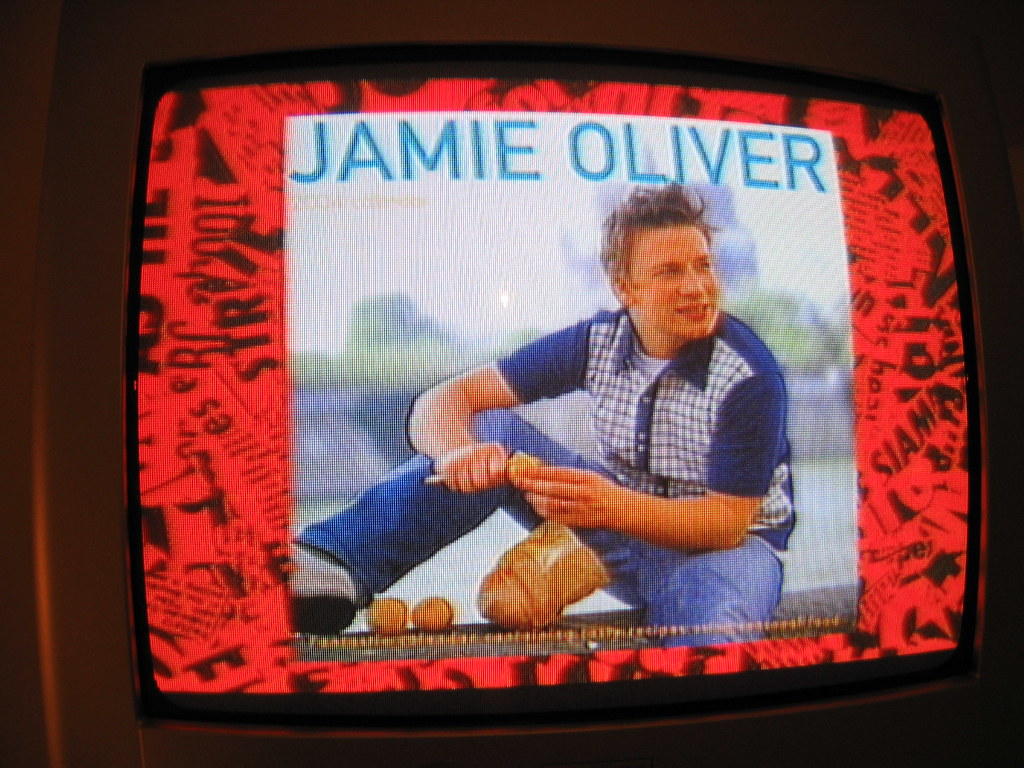
4. **From TV Star to Activist: School Dinners Campaign**
Jamie Oliver’s burgeoning fame wasn’t limited to inspiring home cooks; he quickly recognized the platform he had created could be harnessed for significant social advocacy. In 2005, his four-part documentary series, ‘Jamie’s School Dinners’, became a watershed moment, sparking a national conversation and ultimately, a governmental intervention in public health. He took responsibility for running the kitchen meals in Kidbrooke School, Greenwich, for a year, and what he found horrified him.
Disgusted by the unhealthy, processed food being routinely served to schoolchildren and the alarming lack of nutritious alternatives, Oliver launched his impassioned campaign, ‘Feed Me Better’. He brought cameras into school kitchens, vividly exposing the poor quality of ingredients and the dire nutritional standards that characterized daily school meals across Britain. His advocacy highlighted the profound link between diet and children’s health, behavior, and learning capabilities.
The campaign rapidly gained momentum, capturing public awareness and outrage. Parents, teachers, and concerned citizens rallied behind Oliver’s cause, creating an undeniable groundswell of support. The emotional and scientific arguments he presented were compelling, pushing the issue onto the political agenda. The pressure was immense, and the British Government responded, pledging to spend £280 million on school dinners over three years.
Prime Minister Tony Blair publicly acknowledged Oliver’s campaign as the direct catalyst for this significant policy shift, recognizing the chef’s extraordinary influence. This triumphant moment cemented Oliver’s reputation not just as a culinary expert, but as a formidable social activist. His efforts earned him the title of “Most Inspiring Political Figure of 2005” in the Channel 4 Political Awards 2006, a testament to his powerful and effective advocacy.
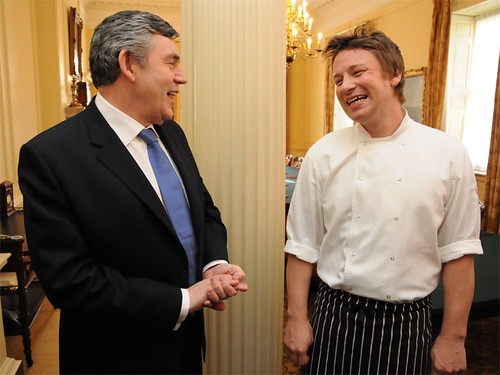
5. **Expanding the Empire: Jamie’s Italian Genesis**
Building on his television success and philanthropic ventures, Oliver ventured into the high street restaurant market with the launch of Jamie’s Italian in June 2008, with its inaugural establishment in Oxford, England. This marked a significant shift towards a more commercial restaurant model, distinct from the social enterprise of Fifteen. The concept aimed to offer accessible, quality Italian food in a casual dining setting, reflecting Oliver’s personal love for Italian cuisine.
The chain experienced rapid expansion, quickly becoming a ubiquitous presence across the UK. At its zenith, there were 42 Jamie’s Italian restaurants operating domestically. The brand’s appeal was undeniable, leveraging Oliver’s immense popularity and reputation for fresh, honest food. It was a carefully crafted proposition, promising diners a taste of authentic Italian cooking, often with Oliver’s signature, simple twist, in an inviting atmosphere.
The Jamie Oliver Restaurant Group (JORG) further expanded the brand internationally through franchising agreements. Jamie’s Italian branches sprung up in diverse locations across the globe, including Australia, Canada, Cyprus, Hong Kong, Iceland, Ireland, Qatar, Russia, Taiwan, Turkey, the UAE, and Singapore. This global footprint underscored the widespread appeal of Oliver’s brand and his vision for casual dining.
However, this rapid growth was not without its challenges. In 2011, Oliver faced criticism when it was revealed that sauces used in Jamie’s Italian in Glasgow were prepared at an industrial park almost 400 miles away in Bicester, sparking a debate about local produce advocacy versus practical supply chain logistics. That same year, the chain faced scrutiny over food safety protections and illnesses linked to undercooked mincemeat, highlighting the complexities inherent in managing a large-scale restaurant operation.
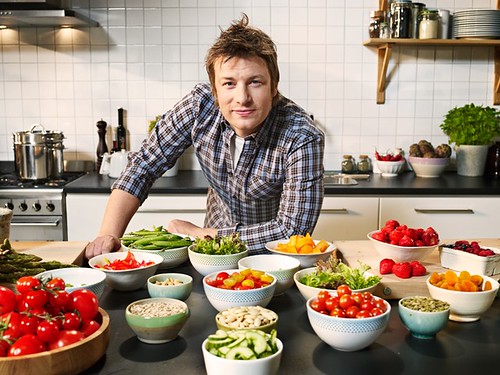
6. **The Authorial Acumen: A Bestselling Pen**
Beyond the television screen and the bustling kitchens of his restaurants, Jamie Oliver established himself as an extraordinarily prolific and successful author. With over 30 books published to date, his literary output has not only provided millions with recipes but has also cemented his status as a major figure in the publishing world. He is, remarkably, the second-best-selling British author overall, a feat surpassed only by J. K. Rowling, and holds the distinction of being the best-selling British non-fiction author since records began.
His cookbooks are more than just collections of recipes; they are extensions of his television persona and culinary philosophy. From ‘The Naked Chef’ (1999) to ‘Jamie’s 30-Minute Meals’ (2010), ‘Everyday Super Food’ (2015), and ‘5 Ingredients – Quick & Easy Food’ (2017), each book has captured a moment in his evolving culinary journey, often reflecting broader societal trends towards faster, healthier, or more economical cooking. His approachable style, clear instructions, and vibrant photography have made his books enduringly popular.
By February 2019, Oliver’s books had achieved staggering sales, exceeding 14.55 million copies. This commercial success translated into significant financial returns, generating just under £180 million for the chef. His ability to translate his on-screen charm and cooking expertise into tangible, beloved printed works has been a cornerstone of his brand, proving his versatility and deep connection with his audience across different media.
His books have often tied directly into his television series, creating a synergistic relationship that amplified their reach and impact. The combination of compelling visuals on screen and practical guidance in print has made his recipes accessible and inspiring to a vast international readership, fundamentally changing how many people approach home cooking. His literary output is a powerful testament to his influence and enduring appeal.

7. **Global Recognition and the TED Prize**
Jamie Oliver’s influence transcended national borders and culinary circles, gaining significant global recognition for his unwavering commitment to food education and public health. His advocacy for healthier eating and food systems resonated deeply, earning him prestigious accolades that acknowledged the international scope of his efforts. This global spotlight underscored his evolution from a charismatic chef to a passionate humanitarian.
In December 2009, Oliver received the highly esteemed 2010 TED Prize, an award given annually to an extraordinary individual with a creative, bold vision to spark global change. This recognition was a profound affirmation of his dedication to transforming global eating habits. His TED Talk, delivered in 2010, passionately outlined his wish for a worldwide food revolution, empowering people everywhere to fight obesity and make informed choices about what they eat.
The TED Prize provided him with a powerful platform to amplify his message on an even grander scale, enabling him to articulate his vision for a future where food education is prioritized and healthier diets are the norm. His address was both emotionally charged and strategically focused, outlining actionable steps for communities and individuals to take control of their food destinies.
Beyond the TED Prize, Oliver’s global impact was further evidenced by his ‘Food Revolution’ series, which aired on ABC in the United States in 2010 and 2011. In the first series, Oliver took on Huntington, West Virginia, statistically one of the unhealthiest cities in the US, to improve its residents’ eating habits. The show won an Emmy for Outstanding Reality Programme in 2010, demonstrating the universal appeal and critical acclaim of his activist work. His campaigns, whether in British schools or American towns, consistently highlighted his belief in the transformative power of food education.
The story of Jamie Oliver is a vibrant mosaic of ambition, innovation, and an unyielding commitment to food, even as it navigates the intricate dance of public image and commercial enterprise. While his culinary prowess and philanthropic spirit captivated millions, his career also unfolded across various media, including lucrative advertising partnerships, the turbulent currents of the restaurant industry, and an ever-evolving presence on television. This section delves deeper into these multifaceted dimensions, revealing the full spectrum of his enduring cultural impact.
Read more about: The Truth About Cooking Oils: Which Ones Fuel Inflammation and How to Make Healthier Swaps
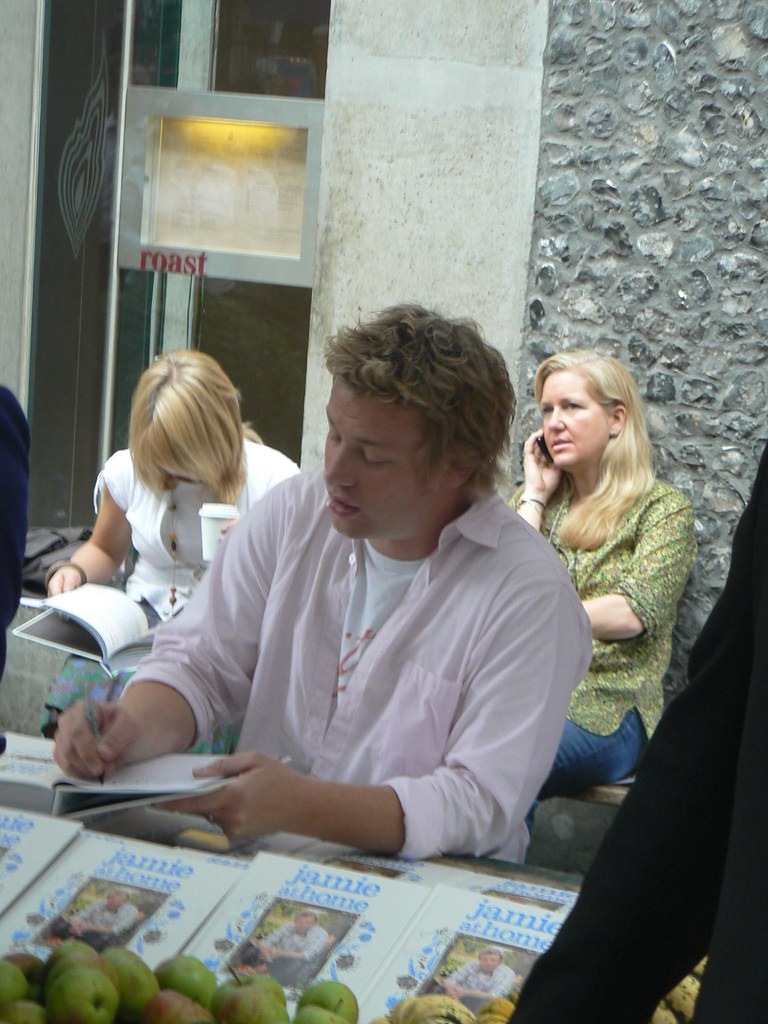
8. **High-Profile Advertising Partnerships**
Oliver’s charismatic persona and widespread appeal naturally made him a highly sought-after figure in the advertising world. For over a decade, he became the recognisable public face of Sainsbury’s, one of the UK’s largest supermarket chains. This prominent endorsement, which began in June 2000, was a testament to his brand power, reportedly earning him an estimated £1.2 million annually and cementing his image in the everyday lives of British consumers.
However, this high-profile partnership was not without its moments of tension. Oliver, a vocal advocate for healthier eating, found himself in a delicate position when he publicly criticised the “junk” food sold by supermarkets, much of which inevitably found its way into children’s lunchboxes. This critique, intended to highlight broader nutritional concerns, reportedly drew a sharp retort from Sainsbury’s CEO Justin King, who countered that “Dictating to people—or unleashing an expletive-filled tirade—is not the way to get engagement.”
Such a public exchange underscored the complexities of balancing commercial obligations with his deeply held convictions about food and health. Ultimately, after an impactful eleven-year run, the partnership between Oliver and Sainsbury’s concluded. Their final collaborative television advertisement graced screens during the Christmas of 2011, marking the end of an era that had profoundly shaped Oliver’s public profile.
Beyond Sainsbury’s, Oliver extended his brand through numerous other endorsements. He became a familiar presence in commercials for Tefal, promoting a range of non-stick pans and cookware, further linking his name with accessible kitchen essentials. Internationally, his face appeared in Australian television commercials for Yalumba wines, notably adopting Del Boy’s iconic catchphrase, “Lovely Jubbly,” which added a touch of his signature British charm to global campaigns.
His strategic advertising reach expanded across continents, forging partnerships with Canadian supermarket chain Sobeys in August 2013, aimed at improving nationwide nutrition and driving advertising campaigns. The following October, he initiated a collaboration with Australia’s Woolworths Supermarkets on similar nutrition initiatives, eventually becoming their culinary face in 2014. These ventures, however, also attracted criticism, particularly concerning the funding models behind the extensive advertising campaigns, illustrating the ongoing scrutiny that accompanied his commercial endeavors. In January 2016, a partnership with international meal kit subscription service HelloFresh was announced, integrating his recipes into weekly deliveries, and in September 2018, he collaborated with Tesco on a series of recipes and promotions, continuing his widespread commercial presence.
Read more about: Unpacking the Power: How Celebrity Endorsements Shape Your Everyday Purchases
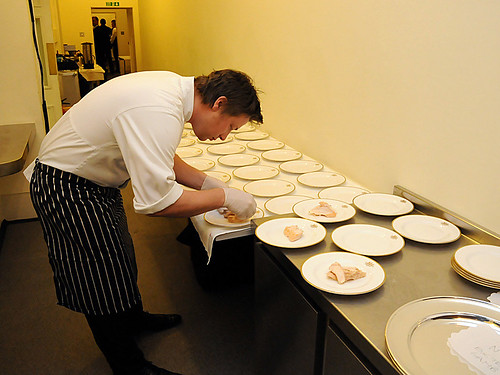
9. **Barbecoa and Other Restaurant Challenges**
While Jamie’s Italian captured much of the public’s attention, Oliver’s restaurant portfolio extended beyond this flagship brand, introducing other ventures that also faced their own set of trials and tribulations. In 2011, he embarked on a new culinary direction with Barbecoa, a restaurant focused on barbecued meats, co-founded with his friend and American barbecue expert, Adam Perry Lang. The venture initially opened two outlets in London, one in Piccadilly and another in St Pauls, reflecting a diverse offering in his gastronomic empire.
However, the Piccadilly branch of Barbecoa soon garnered unwelcome headlines in 2014 when it voluntarily closed for 24 hours following a concerning hygiene inspection. The Times newspaper reported unsettling findings by inspectors, including “mouse droppings, mouldy carcasses and out-of-date meat,” a stark contrast to Oliver’s public image of fresh, wholesome food. This incident underscored the immense challenges inherent in maintaining consistent standards across multiple high-volume restaurant operations.
Further financial difficulties plagued Barbecoa. In February 2018, Oliver’s restaurant group confirmed they were evaluating the market suitability of some sites, and shortly thereafter, Barbecoa Ltd went into administration. In a strategic move, Oliver immediately bought back the St Paul’s site through a pre-packed agreement via a new subsidiary, demonstrating a determination to salvage parts of his enterprise even amidst broader financial turmoil. The Piccadilly site remained closed.
These challenges were not isolated to his UK operations. Oliver’s international ambitions also encountered significant hurdles, as seen with the collapse of his Canadian partnership in 2014. He had partnered with Toronto restaurateur King Street Co. and executive chef Rob Gentile to open 10 planned branches of Jamie’s Italian, including a prominent location in Yorkdale Shopping Centre. Despite the promising vision, this Canadian venture ultimately collapsed in 2020, further illustrating the volatility and complexities of expanding a restaurant brand on a global scale.
Read more about: Jamie Oliver’s Culinary Journey: From ‘Naked Chef’ Stardom to Restaurant Empire Rollercoaster
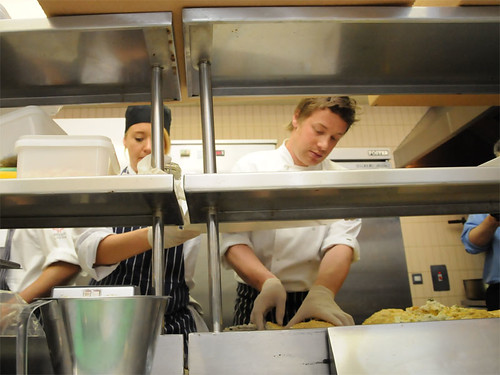
10. **The Unraveling of Jamie’s Italian**
The trajectory of Jamie’s Italian, initially a beacon of Oliver’s high-street ambition, became increasingly fraught with financial difficulties, leading to a dramatic and painful contraction of his restaurant empire. The initial signs of trouble emerged in January 2017 when chief executive Simon Blagden announced the closure of six UK restaurants, impacting approximately 120 jobs across locations in Aberdeen, Cheltenham, Exeter, Royal Tunbridge Wells, and two London sites at Ludgate and Richmond. This move signaled a necessary, albeit difficult, recalibration.
The situation escalated significantly in January 2018. As part of a critical agreement with creditors to secure £71.5 million of debt, the Jamie Oliver Restaurant Group proposed to enter Jamie’s Italian Ltd into a company voluntary arrangement (CVA). This drastic measure sought crucial rent reductions on eight remaining outlets and necessitated the closure of a further 12 restaurants across the UK. Among these closures were sites in Bath, Bristol, Bluewater, Chelmsford, Harrogate, Kingston, Milton Keynes, Reading, and St Albans, alongside three more London locations: Greenwich, Piccadilly, and Threadneedle Street.
Court papers filed as part of the CVA process laid bare the staggering extent of the company’s financial distress. They revealed Jamie’s Italian had total debts amounting to £71.5 million, a figure that included £2.3 million in unpaid wages owed to staff, £30.2 million in overdrafts and loans, and a substantial £41.3 million owed to landlords, HM Revenue and Customs, suppliers, and other creditors. A significant portion of these debts, £47 million, was covered by loans from HSBC Bank and Oliver’s other companies, highlighting the personal financial commitment Oliver had made to prop up the struggling enterprise.
Despite these desperate measures, the restaurant group ultimately succumbed to the pressures. On May 21, 2019, Jamie’s Italian, along with other Oliver-owned restaurants, went into administration, a devastating blow that resulted in the closure of 22 out of 25 restaurants and the loss of 1,000 jobs. The few exceptions that continued operations, such as Jamie’s Italian restaurants and Jamie Oliver’s Diner at Gatwick Airport, were eventually sold to catering company SSP Group, while 61 overseas locations and the catering services operated by Aramark in the U.S. remained unaffected due to their franchise models.
The aftermath of the collapse continued to reverberate. In January 2020, KPMG, the administrators, stated that the majority of the £80 million owed by Oliver’s restaurant chain would not be recovered, leaving hundreds of suppliers and several town councils to bear the brunt of the significant losses. Furthermore, an employment tribunal in 2020 ruled that Oliver’s restaurants had broken labour laws by failing to consult employees prior to making them redundant, adding a challenging legal dimension to an already tumultuous chapter.

11. **A Prolific Television Career: Evolution and Diversity**
Jamie Oliver’s television career has been a dynamic and prolific journey, evolving far beyond his initial ‘Naked Chef’ persona to encompass a remarkable breadth of formats and subject matter. His transition from BBC to Channel 4 in 2002, following a decision not to renew his contract after appearing in cookery advertisements for Sainsbury’s, marked a pivotal moment, allowing him to explore new creative avenues and solidify his status as a versatile broadcaster.
Throughout the 2000s, Oliver continued to captivate audiences with an array of distinct series. He embraced the travelogue format, embarking on culinary adventures in ‘Jamie’s Great Italian Escape’ (2005), which saw him rediscover his love of cooking across Italy, and later in ‘Jamie’s American Road Trip’ (2009) and ‘Jamie Does…’ (2011), where he explored local dishes across Europe and North Africa. These shows seamlessly blended his passion for food with cultural exploration, inspiring viewers to look beyond their familiar kitchens.
His commitment to social advocacy, so powerfully demonstrated with ‘Jamie’s School Dinners’, continued to fuel impactful television. Series like ‘Jamie’s Ministry of Food’ (2008) saw him attempt to transform Rotherham into a “culinary capital” by teaching local inhabitants to cook fresh food, while ‘Jamie Oliver’s Food Revolution’ (2010–2011) took his mission to the United States, tackling obesity and advocating for healthier school meals in critically acclaimed, Emmy-winning fashion, despite facing significant resistance in Los Angeles.
Oliver also tapped into the growing demand for convenience and practicality in home cooking. ‘Jamie’s 30-Minute Meals’ (2010) and ‘Jamie’s 15-Minute Meals’ (2012) became smash hits, demonstrating in real-time how delicious, fresh dishes could be prepared efficiently. Beyond quick meals, shows like ‘Jamie at Home’ (2007) showcased his home-style recipes and gardening tips, and ‘Jamie’s Dream School’ (2011), including its US version with actor David Arquette, delved into educational problems, proving his willingness to tackle complex societal issues through a television lens.
In recent years, his television output has remained as robust and responsive as ever. During the COVID-19 pandemic, he produced ‘Jamie: Keep Cooking and Carry On’ (2020), offering guidance for cooking with limited ingredients, though the show faced some criticism for techniques and ingredients not always found in typical homes. More recently, series like ‘Jamie’s One-Pan Wonders’ (2022), ‘Jamie’s £1 Wonders’ (2022-2023), ‘Jamie Cooks The Mediterranean’ (2023), and seasonal cooking quests like ‘Jamie Cooks Spring’ (2024) and ‘Jamie’s Air-Fryer Meals’ (2024) continue to evolve, reflecting contemporary culinary trends and providing practical, engaging content to his loyal audience.
Read more about: The Indelible Reign of Prince: A Forbes Retrospective on the Musical Genius, Financial Acumen, and Cultural Impact of an Icon

12. **Media Appearances and Broader Cultural Footprint**
Beyond his own dedicated television shows and extensive advertising campaigns, Jamie Oliver has consistently woven himself into the broader fabric of popular culture through a variety of media appearances, showcasing a versatile public persona that extends far beyond the kitchen. His charisma and quick wit made him a natural fit for entertainment programming, allowing him to connect with audiences in different contexts.
Oliver twice guest-hosted Channel 4’s lively entertainment show, ‘The Friday Night Project’, demonstrating his comfort and humor outside of a culinary setting. He also made two memorable appearances on BBC Two’s ‘Top Gear’ in the “Star in a Reasonably-Priced Car” segment. His first appearance famously involved him attempting to prepare a green salad in the back of his Volkswagen Microbus, fitted with a Porsche engine, while the Stig put it through its paces on the test track – a humorous demonstration of his playful approach to celebrity.
His presence also resonated strongly across the Atlantic. In 2008, he became the second British celebrity chef, following Robert Irvine, to compete as a challenger on ‘Iron Chef America’, taking on Iron Chef Mario Batali in a culinary battle focused on cobia, which he ultimately lost. That same year, he served as one of the judges on ‘Oprah’s Big Give’, hosted by Oprah Winfrey, further solidifying his status in the American media landscape. Adding another layer to his cross-media appeal, Oliver was chosen by Disney Pixar to provide the voice of the health inspector in the UK version of the acclaimed animated film ‘Ratatouille’, blending his culinary expertise with animated storytelling.
Oliver’s global appeal also translated into successful live engagements. In 2006, he embarked on an Australian tour, performing in Sydney and Melbourne, where his entertaining stage format included special guests like his mentor Gennaro Contaldo and students from Fifteen London. These shows were captured in a one-off TV documentary titled ‘Jamie Oliver: Australian Diary’, and even featured Oliver performing a new song, “Fish Stew,” written by Leigh Haggerwood, which he cooked and drummed along to, showcasing his multifaceted talents.
More recently, his influence extended to broadcast radio. On December 27, 2022, Oliver took on the prestigious role of guest editor for the ‘Today Programme’ on BBC Radio 4, a significant platform that allowed him to shape the national discourse on a day of critical news and current affairs. These diverse appearances underscore Oliver’s expansive cultural footprint, proving his ability to remain a relevant and engaging figure across numerous media platforms and connect with a broad spectrum of audiences.
Read more about: Beyond the Red Carpet: Unveiling the Must-Visit Celebrity-Owned Restaurants Making Waves in 2025
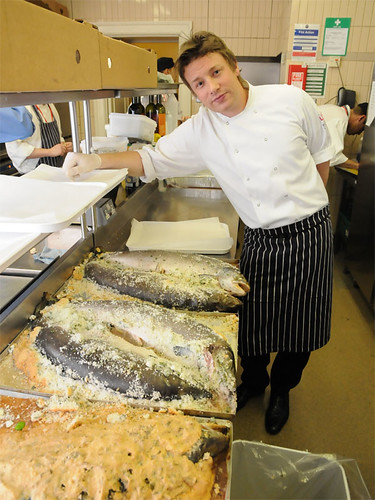
13. **The Children’s Book Controversy**
In 2023, Jamie Oliver ventured into a new literary genre, publishing his first children’s book titled ‘Billy and the Giant Adventure’. This marked a fresh creative direction for the prolific author, aiming to capture the imaginations of a younger audience with tales of fantastical escapades. The initial reception was promising, leading to the swift release of a sequel, ‘Billy and the Epic Escape’, in March 2024, which continued the adventures of the same characters on a vibrant summer vacation.
However, the sequel soon became the focal point of significant public scrutiny and criticism. An Australian Indigenous education advocacy group spearheaded a sharp critique, specifically targeting the book’s representation of Indigenous Australians. The core of the concern revolved around the portrayal being deemed insensitive to the profound and painful history of the Stolen Generations, a period when Indigenous children were forcibly removed from their families by Australian federal and state government agencies and church missions.
This controversy quickly escalated, highlighting the critical importance of cultural sensitivity and accurate representation in storytelling, particularly when aimed at children. In response to the widespread and deeply felt offense, Oliver acted decisively. In November, he made the difficult decision to recall the book from circulation, issuing a public apology where he acknowledged and expressed regret for unintentionally causing offense. This episode served as a powerful reminder of the responsibilities that accompany cultural representation in media, even for a figure renowned for his positive public contributions.
Read more about: Mystery Solved: 11 Classic Commercials Who Vanished From Prime Time TV — And Where to Stream Them All Now.

14. **Resilience and Re-Emergence: New Ventures**
Emerging from the formidable challenges that saw his vast restaurant empire largely collapse, Jamie Oliver has demonstrated a remarkable spirit of resilience and an enduring passion for the culinary world. Rather than retreating from the restaurant scene, he has strategically and thoughtfully re-entered it, signaling a new chapter defined by meticulous planning and a renewed focus.
November 2023 marked a significant moment in this re-emergence with the opening of ‘Jamie Oliver Catherine Street’ in London. This new restaurant, his first major venture since the 2019 administration, was launched in a notable partnership with Andrew Lloyd Webber’s LW Theatres, situated at the historic Theatre Royal, Drury Lane. The location and collaboration suggest a more curated and high-profile approach, moving beyond the casual dining chain model that previously defined much of his restaurant portfolio.
This renewed domestic focus has been complemented by carefully chosen international expansion. March 2024 saw the opening of ‘Jamie’s Italian Belgrade’ in Serbia, located in the prestigious Belgrade Waterfront quarter. This venture represents his first restaurant in that particular part of Europe, indicating a selective, strategic approach to global growth that capitalises on his internationally recognised brand while perhaps avoiding the rapid, widespread franchising model that led to previous difficulties.
These recent openings are more than just business transactions; they are a profound statement of Oliver’s unwavering commitment to the hospitality industry and his ability to adapt and rebuild in the face of adversity. They underscore his entrepreneurial spirit and an unshakeable belief in the power of food to connect people, offering a tantalising glimpse into the future direction of a culinary icon who continues to shape the global gastronomic landscape with unwavering determination.
Jamie Oliver’s journey is a compelling tapestry of culinary artistry, fervent activism, and entrepreneurial ambition, stitched together with moments of soaring success and humbling setbacks. From his humble Es roots to becoming a global phenomenon, he has continuously pushed the boundaries of what a celebrity chef can achieve. His impact, whether through campaigning for healthier school meals, inspiring millions to cook at home, or navigating the intricate world of business, remains indelible. Despite the closures of his restaurant chains and the controversies that have tested his resolve, Oliver’s resilience shines through in his continued television presence, publishing endeavors, and the strategic launch of new culinary ventures. He stands as a testament to the power of passion and perseverance, an iconic figure whose influence on food, culture, and society continues to evolve and inspire.

